Introduction
Got a Dachshund? These energetic little companions need special attention, particularly regarding their diet. A well-structured dachshund feeding chart is crucial for their health and longevity. This detailed guide will help you navigate the unique nutritional needs of your Dachshund at every life stage. Whether you have a playful puppy or a wise senior, we’ve got you covered.
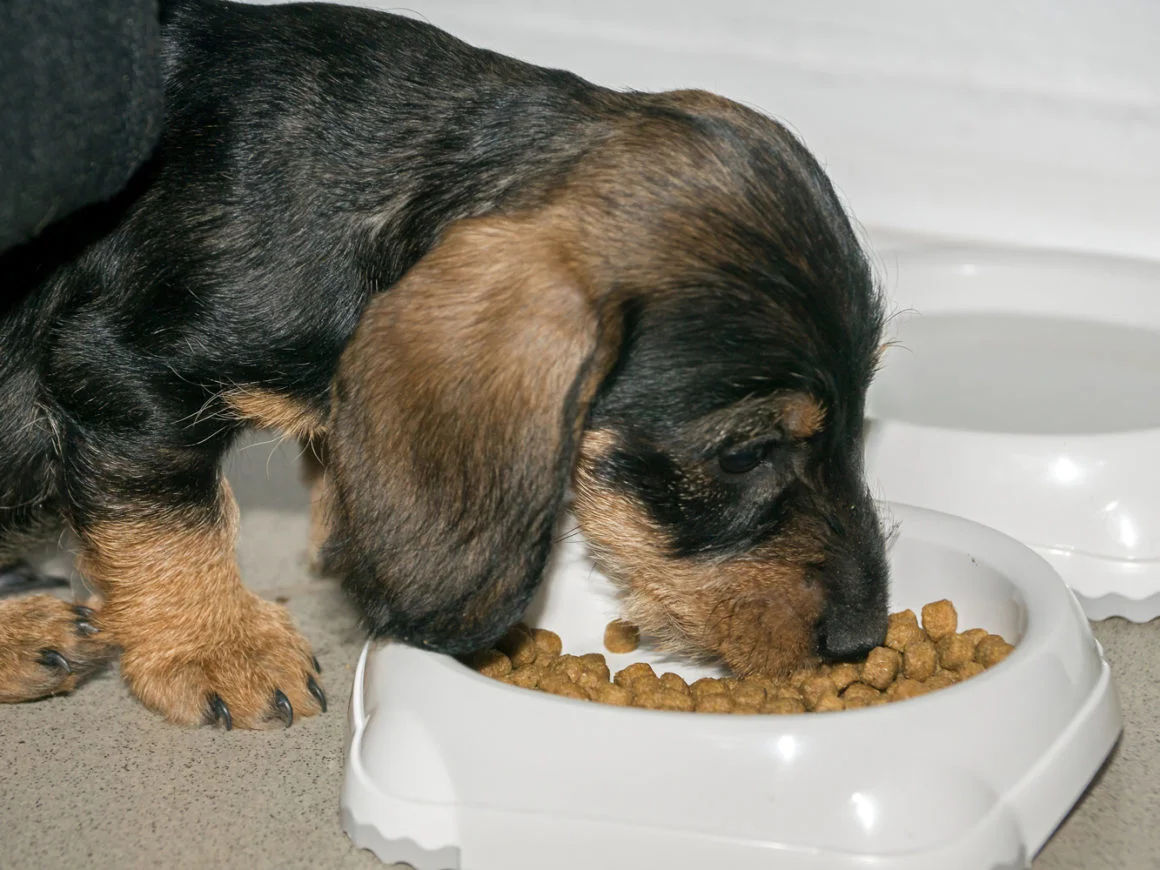
Mastering the Dachshund Feeding Chart: Nutrition Essentials
What Are the Nutritional Needs of Dachshunds?
Dachshunds have specific dietary needs due to their small size and high energy levels. They require a balanced diet rich in proteins, fats, carbohydrates, vitamins, and minerals. Proteins support muscle development; fats provide energy and help with nutrient absorption; carbohydrates are essential for overall energy levels; and vitamins and minerals contribute to various bodily functions.
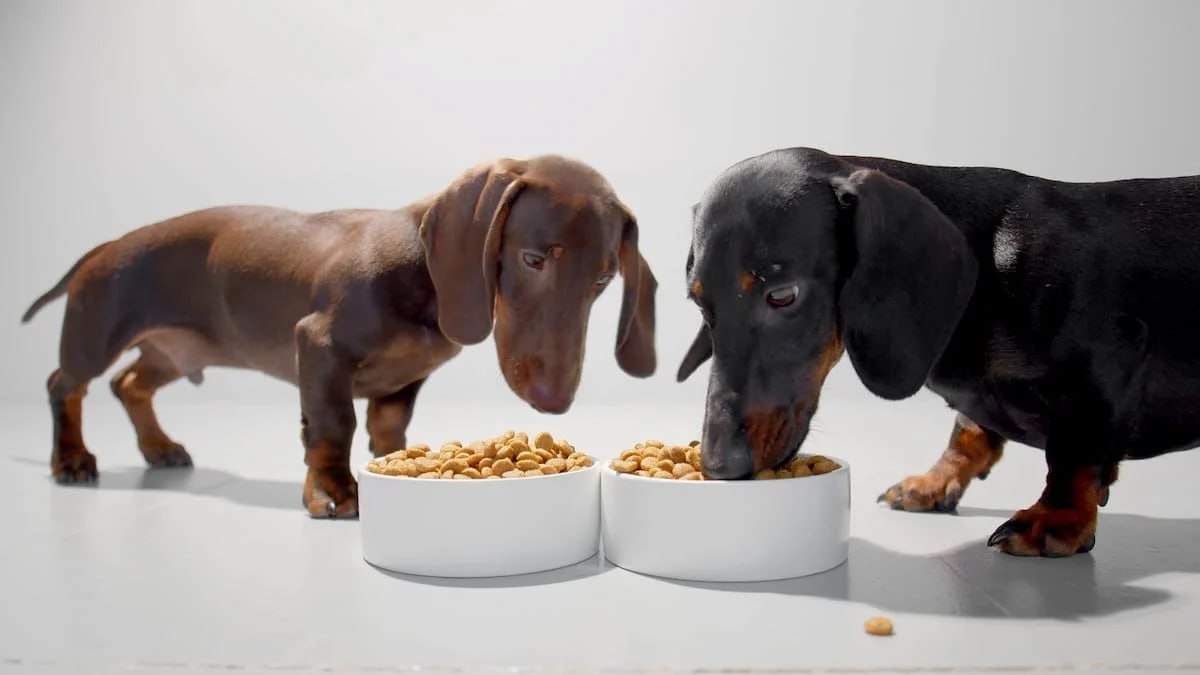
Why Is a Dachshund Feeding Chart Important for Your Dog’s Health?
A dachshund feeding chart is crucial for maintaining your dog’s health by regulating portion sizes and ensuring they receive the right nutrients at the right times. Without proper portion control, your Dachshund may face health issues such as obesity, malnutrition, and digestive problems. A well-structured feeding chart helps you maintain your Dachshund’s ideal weight and overall well-being, making it an essential tool for any responsible pet owner.
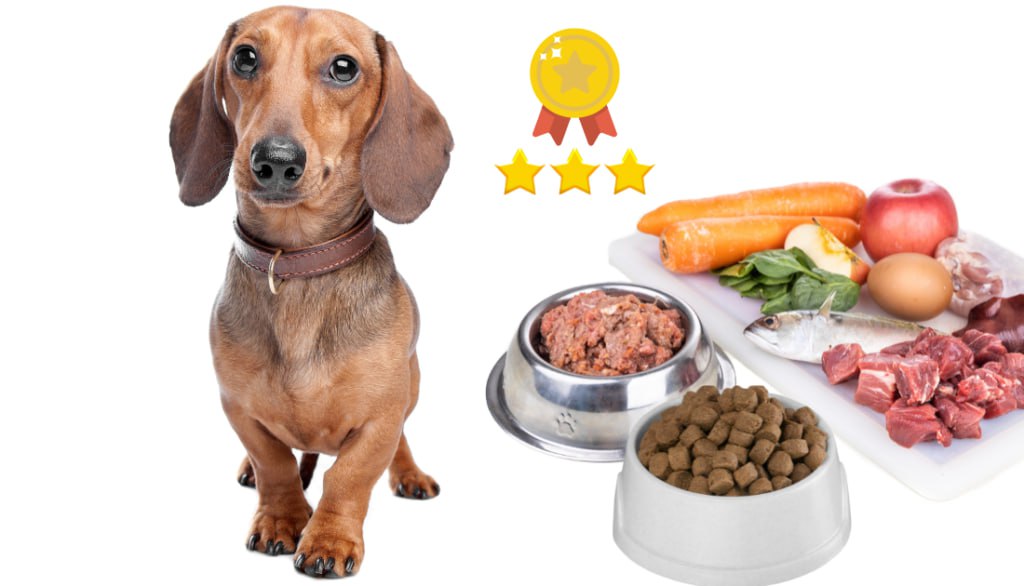
Age-Specific Feeding Guidelines
Here’s a simplified and easy-to-understand Dachshund feeding chart based on age groups:
| Age | Amount of Food | Frequency |
| Puppies | About 55 calories per pound of body weight per day | 3-4 meals per day |
| Adults | 30-35 calories per pound of body weight per day | 2 meals per day |
| Seniors | Adjust based on activity level and health needs | 1-2 meals per day |
Feeding Dachshund Puppies (0-12 months)
How Much Should a Dachshund Puppy Eat?
Dachshund puppies have higher calorie needs than adults due to their rapid growth. Typically, according to a dachshund feeding chart, a puppy should consume about 55 calories per pound of body weight daily. This ensures they receive the necessary nutrients for healthy development.

How Often Should You Feed a Dachshund Puppy?
For optimal energy levels and growth support, puppies should be fed 3-4 times a day. This frequent feeding schedule is crucial in preventing hypoglycemia, a common concern in small breeds like Dachshunds. Wondering specifically about “How much to feed a mini Dachshund?” The same principle applies: ensure they receive adequate calories spread across multiple meals to sustain their growth and energy needs.
Feeding Adult Dachshunds (1-7 years)
How Much Should an Adult Dachshund Eat Per Day?
Adult Dachshunds need fewer calories than puppies. Typically, they require about 30-35 calories per pound of body weight per day. Adjust the quantity based on their activity levels and health conditions.
What Is the Ideal Feeding Schedule for Adult Dachshunds?
Feeding adult Dachshunds twice a day is ideal. This helps maintain stable energy levels and prevents overeating. Ensure you follow a consistent feeding routine to keep their digestive system in check.
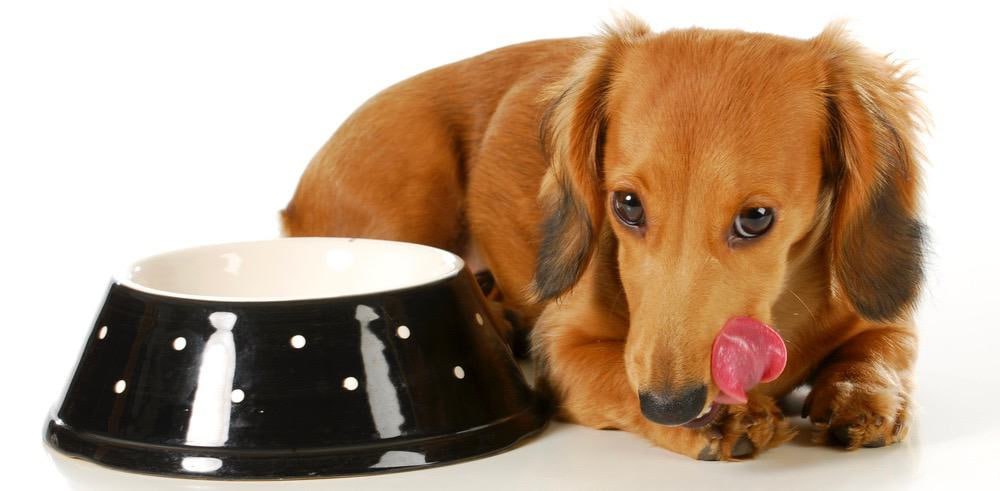
Feeding Senior Dachshunds (7+ years)
How Do the Dietary Needs of Senior Dachshunds Change?
Senior Dachshunds require fewer calories but more fiber to aid digestion. Their metabolic rate slows down, so it’s crucial to adjust their diet to prevent weight gain and other health issues.
How Can You Adjust Their Feeding Schedule and Portions?
Feeding smaller, more frequent meals can help seniors digest food better. Consider switching to senior-specific dog food that caters to their changing nutritional needs.
Weight-Specific Feeding Recommendations
Feeding Based on Weight
Use this comprehensive Dachshund feeding chart to determine the appropriate amount of food based on your Dachshund’s weight and activity level:
| Dachshund’s Weight | Amount of Food for Sedentary Activity Level | Amount of Food for Average Activity Level | Amount of Food for Robust Activity Level |
| 4 pounds (1.8 kg) | 1/2 cup | 5/8 cup | 5/8 cup |
| 7.5 pounds (3.4 kg) | 3/4 cup | 1 cup | 1.25 cups |
| 11 pounds (5 kg) | 1 cup | 1.25 cup | 1 3/8 cups |
| 14.5 pounds (6.5 kg) | 1.25 cups | 1.5 cups | 1.5–1.75 cups |
| 18 pounds (8 kg) | 1.5 cups | 1.75 cups | 1 7/8 cups |
| 20 pounds (9 kg) | 1.5–1.75 cups | 1.75–2 cups | 1 7/8–2.25 cups |
| 22 pounds (10 kg) | 1.75 cups | 2 cups | 2.25 cups |
| Over 22 pounds (>10 kg)
(This section is based on loose estimates; consult your veterinarian for more specific feeding recommendations.) |
Add about 1/8 cup per every 3–5 pounds. | Add about 1/4 cup per each additional 3–5 pounds. | Add about 1/4 cup per each additional 3–5 pounds. |
Calculate your Dachshund’s daily calorie requirement using their weight as a guide. For instance, if your Dachshund weighs 15 pounds, they would typically need around 450-525 calories per day. Adjust the portion size according to the calorie content of the food to maintain their health and ideal weight. This Dachshund feeding chart provides a structured approach to ensure your pet receives appropriate nutrition based on their size and energy needs.
Adjusting Portions for Overweight and Underweight Dachshunds
How Can You Help Your Dachshund Lose Weight or Gain Weight Healthily? For overweight Dachshunds, reduce the caloric intake by 10-20% and increase their exercise. For underweight Dachshunds, increase the caloric intake and consult your vet for any underlying health issues.

Types of Food for Dachshunds
Choosing the right food is crucial for your Dachshund’s health and well-being. If you’re wondering what can Dachshunds eat, here are different types of diets to consider:
Dry Kibble vs. Wet Food
Dry kibble is convenient and helps maintain dental health by reducing plaque buildup. However, it may not be as appetizing as wet food. Wet food is more hydrating and appealing to some dogs but can contribute to dental issues if oral hygiene isn’t maintained.
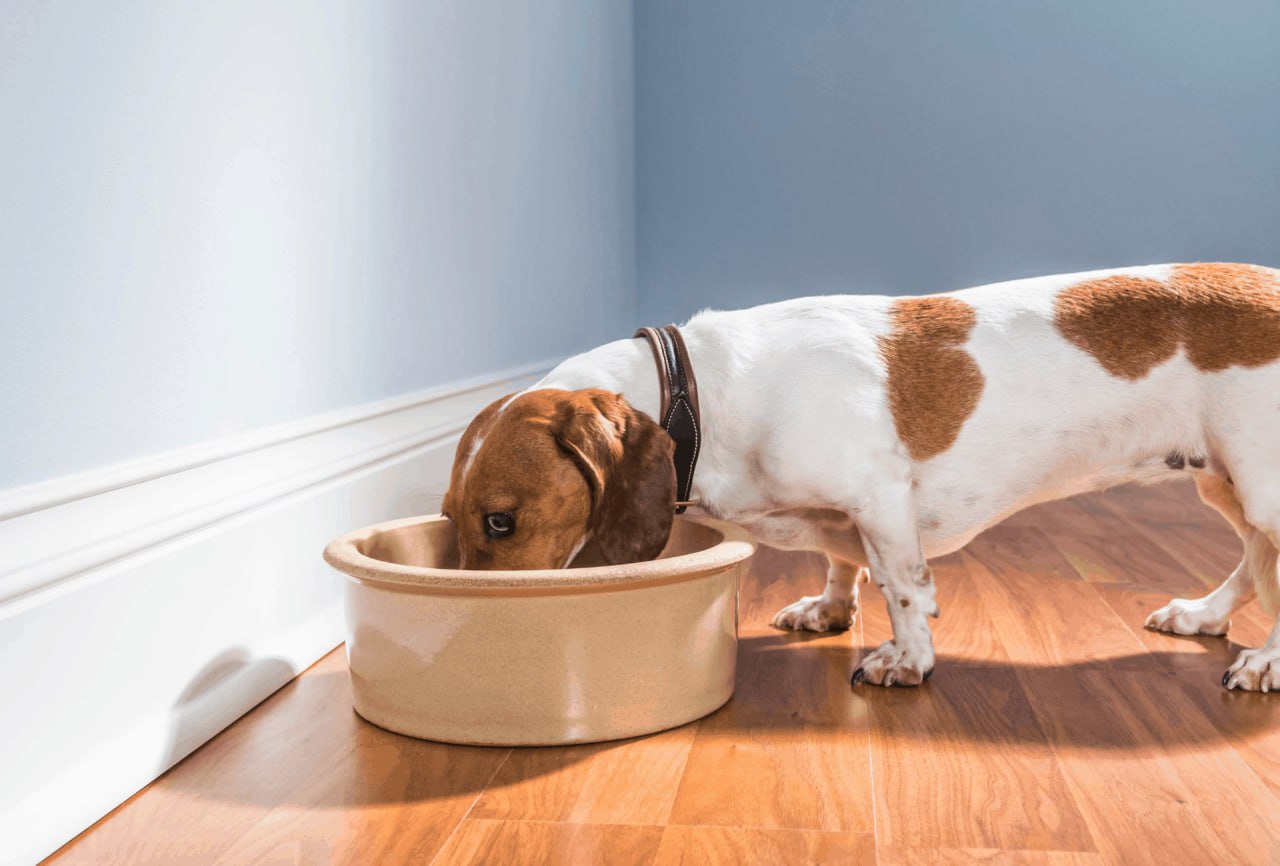
Homemade Diets
Homemade diets allow you to customize your Dachshund’s food based on their specific needs and preferences. For example, a homemade meal could consist of boiled chicken, brown rice, and steamed vegetables. It’s essential to consult your veterinarian to ensure the diet is nutritionally balanced and meets your dog’s requirements.
Recommended Brands
Several reputable brands offer specially formulated diets designed for Dachshunds:
- Royal Canin: Known for breed-specific formulas that address Dachshund’s unique nutritional needs.
- Blue Buffalo: Offers natural and holistic recipes that focus on high-quality ingredients.
- Hill’s Science Diet: Provides scientifically formulated diets to support overall health and vitality.
Read more : homemade dog food for dachshunds
Special Dietary Needs
Health Conditions
Dachshunds, like many breeds, may have specific health conditions that require special dietary considerations. If your Dachshund suffers from allergies, switching to hypoallergenic dog food can help alleviate symptoms. Hypoallergenic formulas are designed to minimize allergens and are typically free from common triggers like wheat, soy, and certain proteins. For digestive issues, foods high in fiber and low in fat can improve gastrointestinal health and promote regular bowel movements. Always consult your vet for personalized advice and recommendations tailored to your Dachshund’s unique health needs. Using a dachshund feeding chart can help you track and manage their dietary intake effectively.

Weight Management Formulas
Maintaining a healthy weight is crucial for your Dachshund’s overall well-being. Look for dog foods labeled as “weight management” or “light.” These formulas are lower in calories and higher in fiber, which helps your Dachshund feel full while consuming fewer calories. This can be particularly beneficial for Dachshunds prone to weight gain. Weight management formulas can support your pet in achieving and maintaining an ideal weight, thereby reducing the risk of obesity-related health issues.
Treats and Snacks
Appropriate Treats
When it comes to treating your Dachshund, it’s important to choose low-calorie, natural options. Some excellent choices include baby carrots, apple slices, and commercial dog treats that are specifically labeled as healthy. Avoid giving treats high in sugar or artificial ingredients, as these can lead to weight gain and other health issues.

Calorie Considerations
According to a dachshund feeding chart, treats should constitute no more than 10% of your Dachshund’s daily caloric intake. Being mindful of the number and size of treats helps prevent overfeeding and maintains your dog’s ideal weight. For example, if your Dachshund’s daily caloric requirement is 500 calories, treats should not exceed 50 calories per day.
Transitioning Between Foods
Gradual Transition Process
When introducing a new food to your Dachshund’s diet, a gradual transition over 7-10 days is recommended. Start by mixing 25% of the new food with 75% of the old food. Gradually increase the proportion of the new food while decreasing the old food every few days. This slow transition helps your dog’s digestive system adjust without causing any stress.
Mixing and Portion Adjustments
During the transition period, closely monitor your Dachshund’s reaction to the new food. Look out for any signs of digestive issues such as diarrhea or vomiting. If these symptoms occur, it might be necessary to adjust the portions or transition even more slowly. Always consult your vet if any problems persist, ensuring that your Dachshund maintains optimal health throughout the dietary change.
Common Feeding Mistakes to Avoid
Overfeeding and Underfeeding
One of the most common mistakes Dachshund owners make is overfeeding or underfeeding their pets. Overfeeding can lead to weight gain, lethargy, and an increased risk of obesity-related health issues. Signs of overfeeding include a noticeable increase in weight and a lack of energy. On the other hand, underfeeding can result in weight loss, low energy levels, and visible rib bones. It’s essential to monitor your Dachshund’s weight regularly and adjust their portions accordingly to maintain the average weight recommended in the dachshund feeding chart.
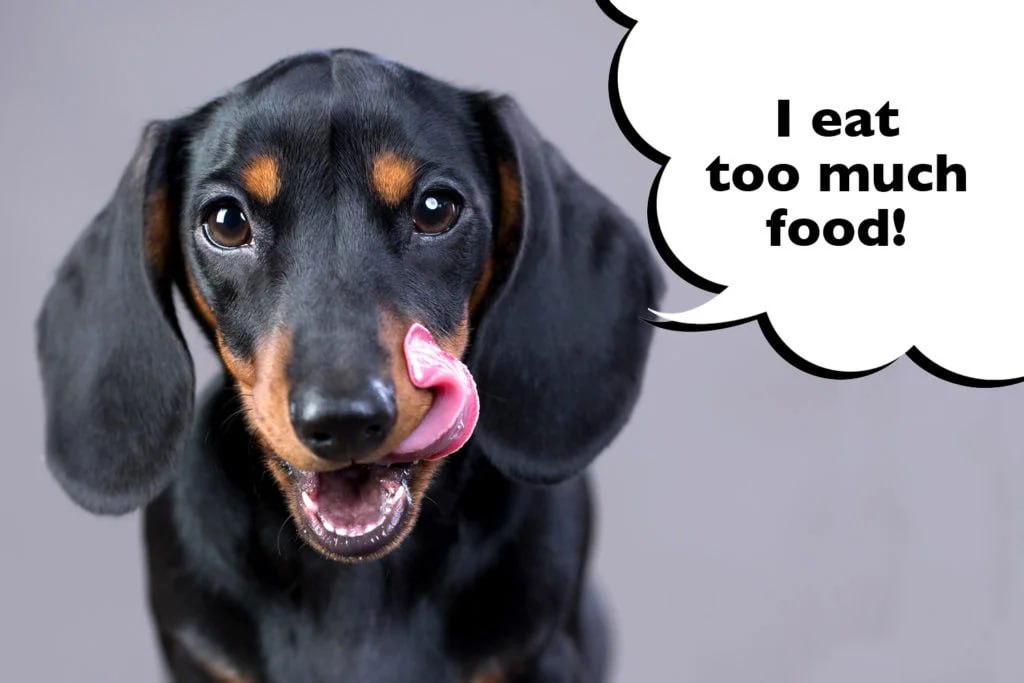
Foods to Avoid
Certain foods can be toxic to Dachshunds and should be avoided at all costs. Chocolate, grapes, onions, garlic, and caffeine are particularly harmful and can lead to severe health problems if ingested. Always ensure that these items are kept out of reach and avoid giving them as treats.
Monitoring and Adjusting Diet
Regular Weight and Health Checkups
To ensure your Dachshund remains healthy, it’s important to weigh them regularly and schedule veterinary checkups every 6-12 months. These regular health assessments help catch potential issues early, allowing for timely interventions and adjustments in their diet.
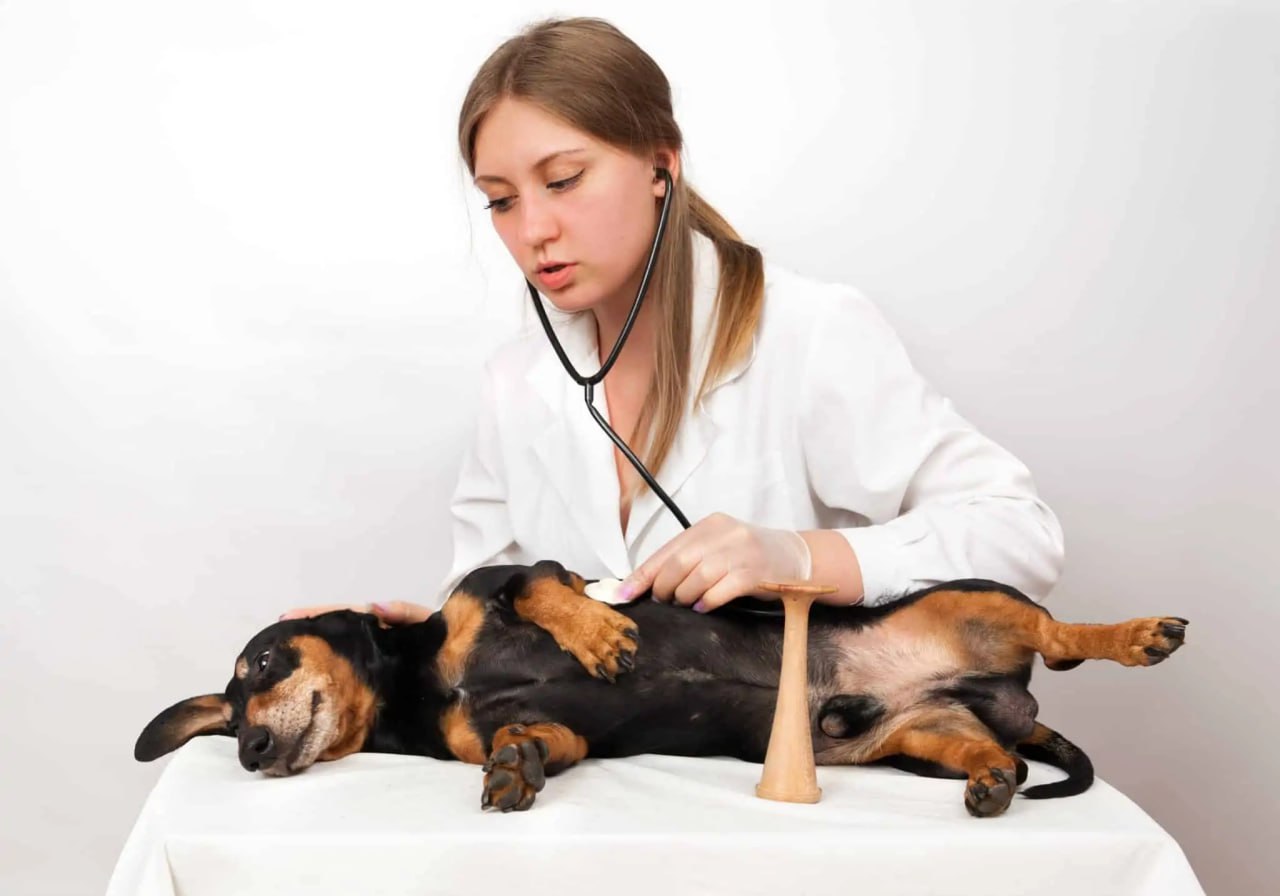
Adjusting Diet Based on Activity Level and Health
A Dachshund’s dietary needs can change based on their activity level, age, and overall health. For instance, a more active Dachshund may require additional calories, while an older or less active dog might need fewer. Refer to the dachshund feeding chart for general guidelines, but always consult with your vet for personalized dietary recommendations. Your vet can provide advice tailored to your dog’s specific needs, ensuring they receive the right balance of nutrients to stay healthy and fit.
FAQs
How much food should a dachshund eat a day?
A Dachshund should eat approximately 30-35 calories per pound of body weight per day. Adjust based on activity level and age.
What Is the Best Food for a Dachshund with Allergies?
Hypoallergenic dog foods or those with limited ingredients are best. Consult your vet for personalized recommendations.
Can Dachshunds Eat Human Food?
Some human foods are safe in moderation, like cooked meat and vegetables. Avoid toxic foods like chocolate, grapes, and onions.
What is the ideal diet plan for Dachshunds based on their feeding chart?
The best dog food for Dachshunds should be high in protein, moderate in fat, and include omega-3 fatty acids to support joint health and their active lifestyle. It’s important to adjust the portion sizes based on their weight and activity level, following a detailed Dachshund feeding chart to prevent obesity and related health issues.
Conclusion
A balanced diet and a proper dachshund feeding chart are essential for maintaining your Dachshund’s overall health and well-being. It’s important to tailor their diet according to their age, weight, and specific health needs to ensure they receive the right amount of nutrition. Puppies, adults, and senior Dachshunds all have different dietary requirements, and following a feeding chart can help you manage these needs effectively. For personalized advice, it’s always best to consult your veterinarian, who can provide guidance based on your dog’s individual circumstances. Remember, a well-fed Dachshund is a happy and healthy companion.
Have any tips or experiences with feeding your Dachshund? We’d love to hear from you! Leave your comments and questions below to join the conversation and help other Dachshund owners. Happy feeding!

Cuddle Companions is your go-to resource for everything you need to keep your furry friends happy and healthy. We specialize in providing detailed and helpful information about the best foods, treats, and care practices for pets of all kinds. Whether you’re a seasoned pet owner or a new puppy parent, our team of experienced and passionate experts is dedicated to offering reliable advice and recommendations. At Cuddle Companions, we believe that a well-cared-for pet is a happy pet, and we’re here to help you every step of the way. Visit us at [bestdogfoodfordachshunds.net] for more information and resources.

